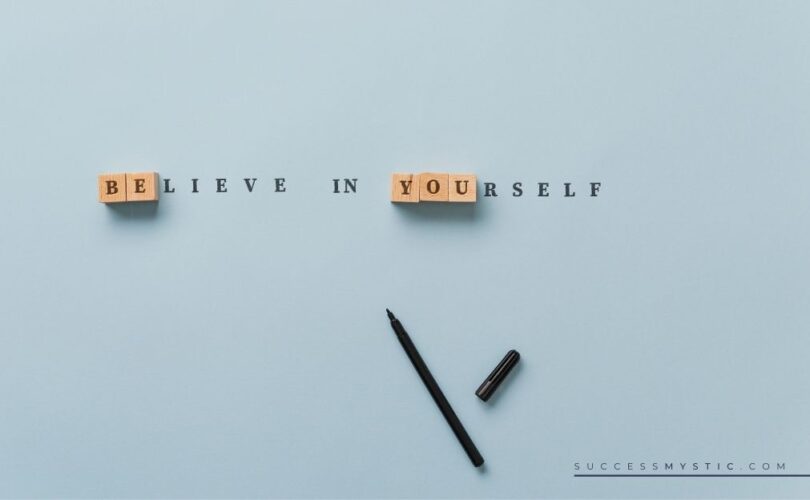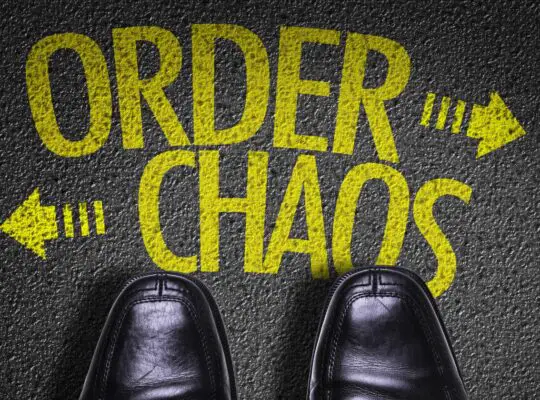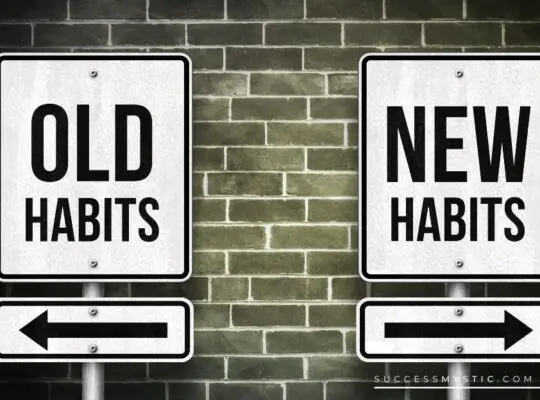Why Self-Acceptance Is Important
As a fundamental part of your mental health and well-being, self-acceptance is vital to your happiness. Learning to accept yourself, to find satisfaction and contentment with yourself as well as your beliefs and actions, helps you become happier and healthier, to become a better you.
Within this guide, we will explore why self-acceptance is so important, how it differs from other constructs, including self-esteem, how to reconcile self-acceptance with self-improvement, and from where our self-acceptance originates. Finally, we will examine many different ways you can improve your self-acceptance and learn to love yourself.
Let’s first start with what we mean by self-acceptance. It is the complete acceptance of all of your attributes, whether they are positive or negative. It means embracing who you are without exception or without placing conditions or qualifications on that love.
If you do not accept all sides of yourself, you have not mastered real self-acceptance. In addition to honoring the positive and valuable attributes in your life, you must also accept the less-desirable sides to who you are. You have to, as they say, take the good with the bad.
So, essentially, self-acceptance is taking a realistic look at yourself, and saying, “yeah, I like this person.” When you are able to say this about yourself, you can then develop compassion toward yourself, recognize your own worth, and build your self-esteem.
So, why is it important that you accept yourself? As it turns out, there are many reasons why this is important. Without self-acceptance, you cannot love yourself or forgive yourself when you make mistakes. You cannot learn to be truly happy or to become the best version of yourself that you can possibly be without self-acceptance.
Self-acceptance and happiness are two sides of the same coin. Without one, you cannot have the other. You will enjoy just as much joy as you feel you deserve, which means you will be the best person you think you deserve to be. Taking the time to get to know and appreciate yourself will help you value all parts of yourself.
The Consequences Of Low Self-Acceptance
When you lack self-acceptance, your psychological well-being will suffer. And when you cannot accept who you are, even proven interventions and techniques that are meant to boost your sense of self become less helpful.
For example, mindfulness meditation is a practice designed to reduce stress. When you lack self-acceptance, though, this practice becomes less effective. Even physical illnesses, like arthritis or inflammatory diseases that affect your digestive system, can make you anxious about your own body. Your rejection of yourself and your negative thoughts can increase the effects of the disease on your body.
When you feel negatively toward yourself, the areas of your brain that control stress and emotional response have less gray matter than those with higher degrees of self-acceptance. Your poor self-acceptance could be disrupting key emotional control pathways and triggers.
Those who refuse to accept who themselves are constantly battle themselves, which can lead to many negative behaviors. An extreme lack of self-acceptance leads to disliking or even hating oneself, which can cause you to engage in many unhealthy behaviors. Those with eating disorders, substance abuse problems, difficulties in relationships, perfectionists, and those with very low self-esteem all likely have problems with self-acceptance.
Self-Acceptance Vs. Self-Esteem
The two constructs of self-acceptance and self-esteem are indeed related, but they are not the same. Self-acceptance, as we said, is judgment-free acceptance of all aspects of yourself, while self-esteem is specifically about how you evaluate yourself.
Self-esteem is about how you judge your own abilities or traits, whether you think they are good enough or not, and whether you based that determination on past accomplishments or simply comparison to some “other.”
If you want to raise your self-esteem, self-acceptance is a wonderful place to start. Getting to know and appreciate yourself, including your strengths and weaknesses, can help you see that notions of “good” and “bad” are subjective and that you, no matter your flaws, have much to offer the world.
Self-acceptance requires taking a hard look at yourself, including those parts that often lower self-esteem, and coming to terms with why and how these parts of you just ARE. When you stop judging yourself and accept who you are, your self-esteem will rise.
Self-Acceptance And Self-Improvement
Learning to accept and love yourself does not mean that you stop growing, changing, learning, and improving as a human. Self-improvement should not be viewed as a method by which you “fix” yourself but instead how you determine in what areas, if any, you would like to continue to be a better version of yourself.
Here is how this works. I can accept myself unconditionally, as the flawed person, which means I don’t deny that I have problems or frailties. But I can also recognize that, if I continue to learn and grow in certain areas of my life, I could carry out specific goals or be happier with what I can do. One is about accepting the present state, which is your reality, while the other is about being okay with wanting more.
I do not have to feel bad about or disown part of myself to want to change it. Self-acceptance is oriented to the present, whereas self-improvement is focused on the future. And I am not saying, “I accept myself, on the condition that I will improve in the future.” I know who I am. I get it. But I also want more.
Learning to accept yourself is something you will work toward every day for your whole life, because you continue to evolve and change, even without trying. Who you are today is not the same person as you were last week, last month, or last year. Accepting yourself means being good with you now. And that person will change as you grow personally over time.
What Determines Self-Acceptance
When you are young, you accept yourself only to the extent that you are accepted by the important people in your life, which are your parents or other caregivers. Before you are eight, you do not even have the ability yet to form your own sense of self. How you feel about yourself is based entirely on what is transmitted to you by the people who take care of you.
When your parents communicate to you that you are acceptable and okay, even when you make mistakes, then you feel accepting, too. When the message is not as clear or negative, you adopt that to form your self-acceptance.
Therefore, it is crucial to separate judgment of behaviors from the judgment of people. The person is not wrong; the behavior is wrong. The child is not negative; the behavior is negative.
Some forms of parental acceptance or non-acceptance are much subtler, sending you messages about whether you are nice, smart, or good based on a wide range of criteria. So, starting from early in our lives, most people have some sort of condition they place upon their own self-acceptance. We allow that we are only conditionally acceptable if we change certain aspects of who we are.
From this, we learn over time to engage in self-criticism and even, when taken to the extreme, self-loathing. The inner voice in our head, one that is sometimes referred to as the inner parent, is advising you in exactly the same way you were parented as a child, and this can mean we refuse to accept many parts of who we are as we grow into adults.
Parents are not the only influences in our young lives that have an impact on self-acceptance. Siblings, peers, other relatives, teachers, and other important people in our early lives also send us messages that inform our sense of self.
When peers are also struggling with their self-doubts and identity issues, these influences can become very cynical and lead to further qualifiers we place on our own ability to accept who we are.
As an adult, then you must learn to make peace with those parts of yourself that were not honored as a child. That part of yourself that was shunned, ignored, or berated when you were younger is still there, and you must learn to accept this part of yourself as well as who you are as an adult.
10 Signs You Lack Self-Acceptance
Sometimes, it can be hard to know if you accept yourself or not. If you are unsure about your current self-acceptance status, take a look at your life to see if you notice any of these warning signs that your self-acceptance may need some attention.
#1. You are anxious. When you experience a lot of anxiety and let fear drive your choices, you lack trust in yourself and do not feel empowered to handle your life.
#2. You do not have fun. If your life is filled with obligations and commitments, or if you find yourself feeling guilty when you are not working, then you do not feel worthy of fun or enjoyment.
#3. You feel stressed out and overwhelmed all the time. You are not taking care of yourself and attending to your needs. You lack the self-worth to believe you need attention.
#4. You feel regret often. When you put yourself into situations where you give too much or make decisions that break your personal boundaries, you lack trust in yourself and do not feel your boundaries are worthy of being honored.
#5. You have several unhappy or unhealthy relationships in your life. If you regularly cling to people who do not positively contribute to your life, you likely do not honor or trust your needs.
#6. You focus a lot on your body. This is a clear sign that you do not accept yourself for who you are.
#7. You always want more than you have. This shows you lack self-worth and do not accept your life for what it is right now.
#8. You settle often. When you
do not live your life to its full potential or doubt yourself, you do not feel empowered and lack self-respect, which stems for a lack of acceptance.
#9. You are consistently critical of yourself. Being overly judgmental or critical of yourself shows an obvious lack of acceptance or self-compassion.
#10. You do not really know what you want. If you are coasting through life, following the advice of others, or just wandering your way forward, you do not have enough self-awareness to know your values or beliefs or to become empowered to create your own path.
15 Ways To Become More Self-Accepting
Learning to accept yourself unconditionally is necessary if you want to enjoy the best version of yourself and your life. Validating that you are exactly who you should be and need to be right now is essential to all aspects of your sense of self and plays a vital role in your overall happiness and enjoyment of life.
Releasing yourself from the habit of constant judgment and criticism can give you newfound freedom to explore your life, find what brings you joy, and bask in the acceptance that you owe no one any explanations, including yourself, for who you are.
The more you are accepting of yourself, the happier you will be in life. It is that simple. The happier you are with yourself, the more happiness you will allow yourself to receive from others and the world. You will finally be able to enjoy happiness because you, at least, feel worthy of having it in your life.
The following are some suggestions or ways you can find greater acceptance within yourself. Pick those that seem to work best for you and try out several over time. Do not get complacent, as the work of appreciating and loving yourself never ends.
1| Celebrate Your Strengths
Most of us spend more time thinking about our shortcomings and weaknesses than we do our strengths. The more we consider and focus on our flaws, though, the more ingrained our lack of acceptance becomes. Instead, focus on your strengths and celebrate them.
Start by writing them all down. What are you good at? When have you done important things in your life? What are your small and large virtues? Keep your list handy and add to it each day. You should include your values and beliefs that guide your life as well as your personality traits that make you special. Spend just a few minutes each day contemplating your list. The more you do, the more you will realize you have many more strengths that you never considered.
2| Develop More Self-Compassion
Learning self-acceptance requires that you also develop self-compassion. Self-compassion is the act of extending compassion to yourself in times of difficulty, failure, or pain. It is treating yourself in the same way you would anyone else who is struggling.
The first step to self-compassion is noticing when you are in pain. Then, just as you would with others, you should respond to the hurt with empathy and offers of help. Acknowledging that you are going through a challenging time, then taking the opportunity to figure out how to comfort and care for yourself is essential.
When you learn to be compassionate toward yourself, you realize that you are worthy of love and happiness. You can become compassionate about the old hurts and slights that have led you to lack self-acceptance, as well, tending to these injuries with love and kindness, as well.
3| Place Yourself First
When learning to accept yourself, you must recognize that your needs and wants are just as valid as other people’s. When you are always putting yourself second, you are not valuing yourself. Putting your interests, ambitions, and well-being at the top of your priority list will ensure that you believe in the importance of yourself and accept that you should not always be in second place.
4| Stop Trying To Impress
If your sense of acceptance is grounded in how good you look to other people, you are not working toward self-acceptance. Need the approval or validation of others is something we all do, but it is an unhealthy alternative to self-acceptance. Living to impress other people means you always live in fear of failure and are constantly wondering what others think of you. That is no way to live.
What you can do with your life has nothing to do with anyone else or what others think. Only you decide what you are capable of doing or what is important in your life. The next time you find yourself worrying about what others will think, stop that thinking in its tracks and instead focus on what makes you happy.
5| Love Yourself And Others Will Love You
We are all filled with an immense ability to love. Some people spend their entire lives waiting for the “right” person upon which to bestow this love, but in reality, the only person deserving of that love is yourself.
Freely loving yourself, eliminates your doubts, insecurities, and self-criticisms. It allows you to pay attention to yourself in ways that show you matter. Don’t wait for others to love you. Instead, love yourself, which shows the world that you value who you are.
6| Repeat Your Mantra
“I did the best I possibly could.” Practicing self-acceptance means coming to terms with some harsh realities about yourself and even uncovering some not-so-pleasant parts of your childhood that have led you to this place of self-loathing.
So, first, you have to accept that, no matter what, there isn’t anything you could have done when you were younger to change who you would become later in life.
It’s done. You are here. You did the best you possibly could. Self-acceptance is about discovering who you are, the good, the bad, and the ugly. And it is about accepting that, no matter what, you did your best, and here you are.
7| Don’t Accept Negativity From Others
There are people in your life who are making it harder for you to accept yourself unconditionally. Think carefully about who these people might be. Make a list. Considering anyone who drains your mental, physical, or emotional health.
Get rid of any negative influences in your life, particularly those people who clearly do not accept themselves and engage in self-destructive behaviors. The more you surround yourself with positivity, the easier it will be to do the demanding work of learning to accept yourself.
8| Practice Forgiveness
We all make mistakes. You have had your share of bad decisions, relationship failures, and financial blunders. It happens. But, instead of carrying around the guilt and shame over your past mistakes, if you want to truly accept yourself, you have to learn to forgive yourself.
Forgiving your past mistakes helps you learn from these experiences. And learning to accept your past shortcomings can help you recognize those you see in yourself today, as well.
Guilt and regret have no place in your heart when you learn to accept yourself unconditionally. Learn from those mistakes and failures, apply those lessons to your life today, and agree that these missteps have made you who you are today.
9| Tell Yourself, “I Love You”
Every day, you should tell yourself, “I love you.” Speak it aloud or in your head, but make sure you to say to yourself this important fact each day. This daily dose of positivity and affirmation can help you start your day, accept everything about you, and help you feel appreciated.
10| Engage In Relaxed Awareness
Relaxed awareness is a mindfulness exercise that allows you to listen to and recognize your emotions, thoughts, self-judgments, and criticisms. It helps you become more aware of how your experiences are affecting you, your own existence in the moment, and the inner voice that is helping or hindering your ability to accept yourself.
While sitting or lying down comfortably, close your eyes and pay attention to your thoughts. While relaxed, simply notice them as the pop in and out of your mind. Do not try to push them away but also don’t just them. Just notice. Don’t worry about turning these into positive ideas or handling them at the moment. Just notice.
11| Stop Listening To Your Inner Critic
Within your mind, there is a little voice whose purpose is to protect you. Our ancient ancestors needed this critic to remind them of critical mistakes that could mean life or death, but today, that voice is more likely to criticize you for forgetting an appointment or getting a bad haircut. Magnifying small infractions into much larger situations is the unique role of this voice, and it is particularly good at its job.
Think of this voice like a toddler. It is not rational; it is selfish. When you hear it throwing a tantrum over your next minor misstep, stop listening. Tune it out. Tell it, “no.” Focus on what you can positively do to learn from your experiences, and move on, knowing that voice holds no power over you unless you let it.
12| Rejoice In The Small Victories
All your achievements have value and meaning, no matter how big or small. Remind yourself each day of your accomplishments, big and small, to help enhance your self-acceptance. Some days, your victories may be getting to work on time without forgetting anything, and someday it may be planting a beautiful tree in your yard. Whatever it is, celebrate that you have done something positive in your life. There are no small wins; they all matter.
13| Don’t Focus Too Much On The Future
Learning self-acceptance requires being present for what is happening in your life today. While potential goals and dreams are motivating and positive, living only for the future means you still are not happy with who you are right now. Celebrate who you are each day, recognizing your worth right now. When you conquer a personal challenge, take time to acknowledge the win before focusing on what lies ahead. Living in the present will help you accept the person that you are today.
14| Focus On Your Strengths
Acknowledging your greatest strengths and traits can help you to cultivate your best self. Spend some time naming your best qualities. Once you see where your strengths lie, and how these have grown over the years, you can consider how these strengths have served you well. Your abilities and competence have allowed you to succeed at many things in life. How will they continue to serve you moving forward?
15| Treat Yourself With Kindness
Every day do something kind for yourself. When you extend kind gestures, your mind begins to believe, more and more, that you are worth and deserving of this attention. Self-acceptance comes from loving yourself, and you show this love through your actions toward yourself each day.
Final Thoughts
Each of us is capable of being our own worst enemies, cutting down efforts to accept ourselves by criticizing, judging, and hating ourselves. These types of behaviors can lead to a lack of growth and can stifle your happiness, so it is crucial that you stop this behavior in its tracks.
Learning to give yourself unqualified approval and acceptance and developing greater self-compassion requires that you focus more on getting to know yourself and less on judging who you are.
It also means confronting the dark recesses where negative emotions lie and learning to live with your past mistakes and failures. Learning to accept yourself is the key to opening the door to your true happiness and becoming a better you.
It is never too late to decide to change how you think about yourself. You can do something right now, starting today, to begin your journey toward self-acceptance and to increase your happiness with your life.







